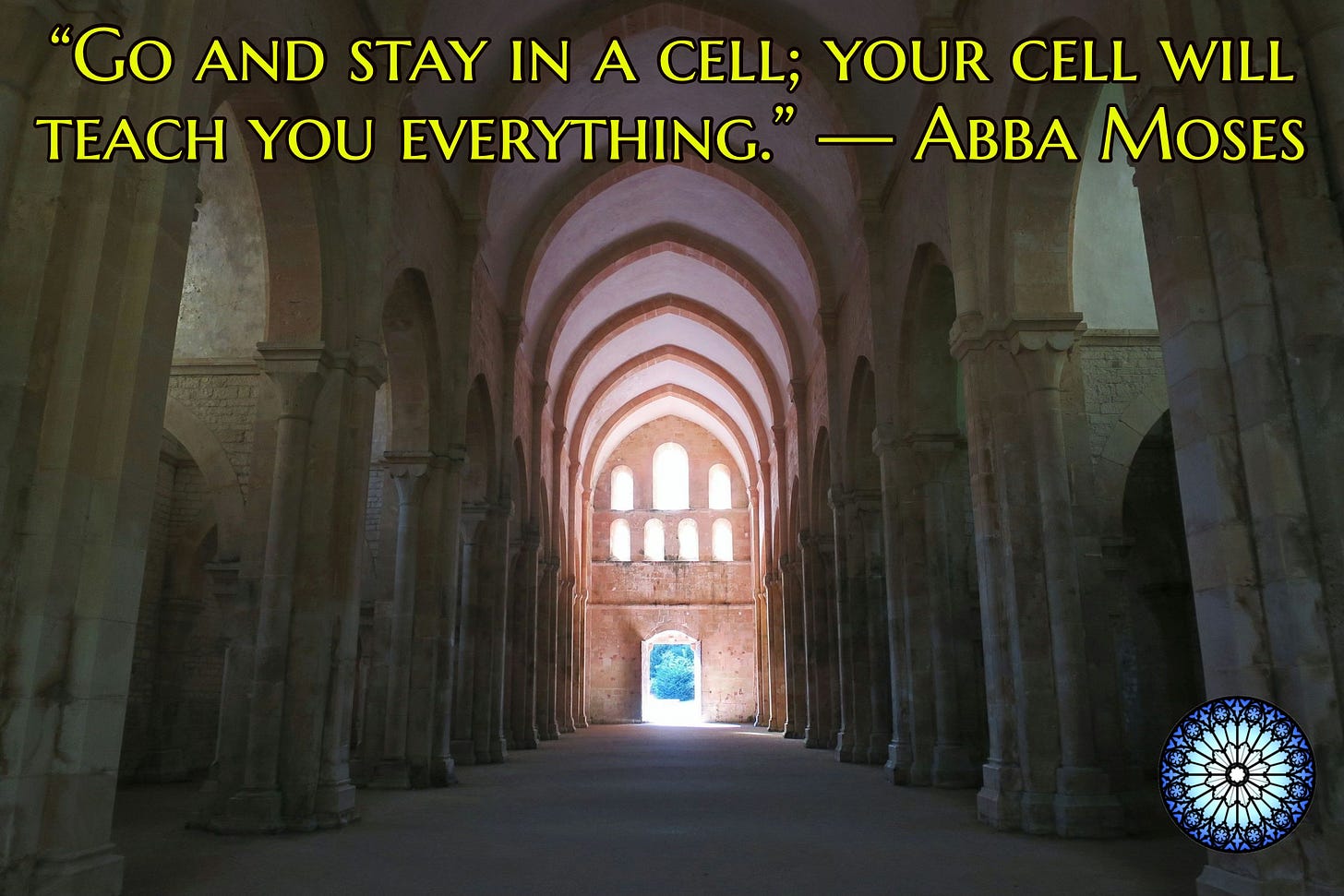Your Cell Will Teach You Everything
Contemplative Stillness as a Source of Wisdom
A brother visited Abba Moses at Scete, asking him for a saying. The elder said to him, “Go and stay in a cell; your cell will teach you everything.” — The Book of the Elders: Sayings of the Desert Fathers
Blaise Pascal (1623-1662) once remarked, “All of humanity's problems stem from our inability to sit quietly in a room alone.” It fits almost too nicel…




